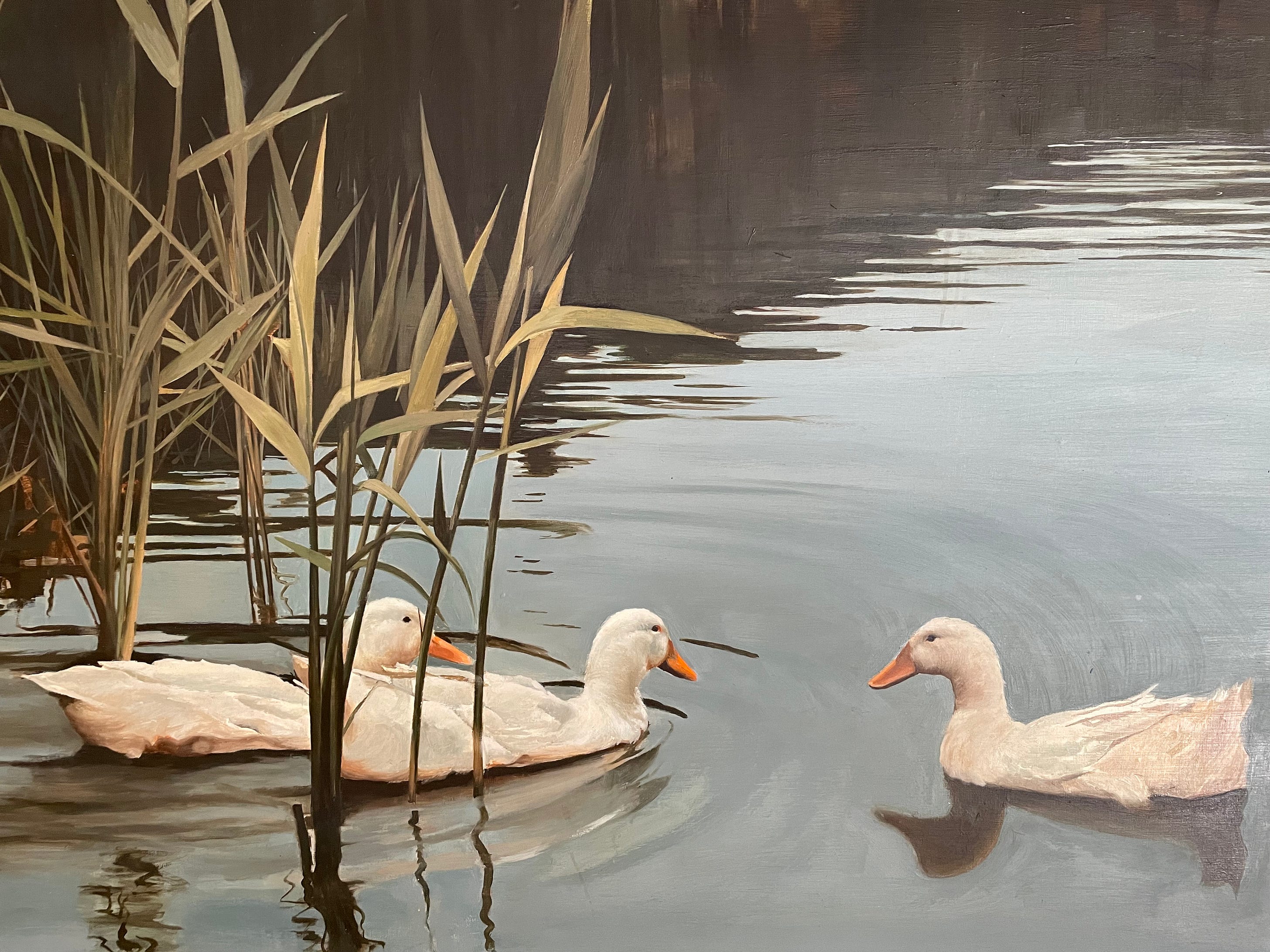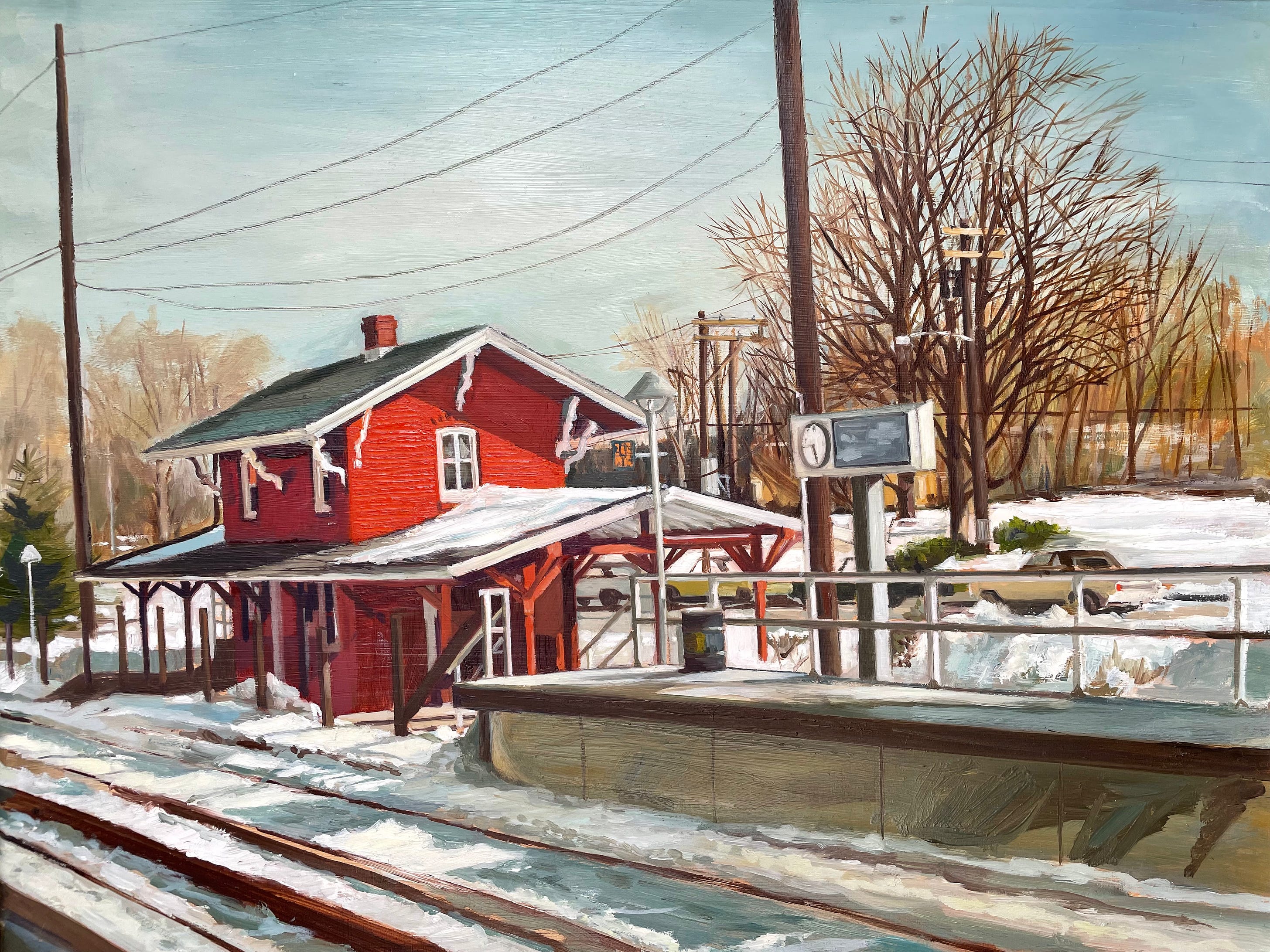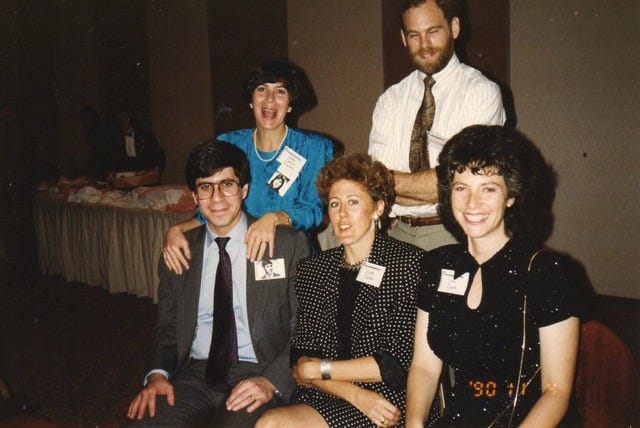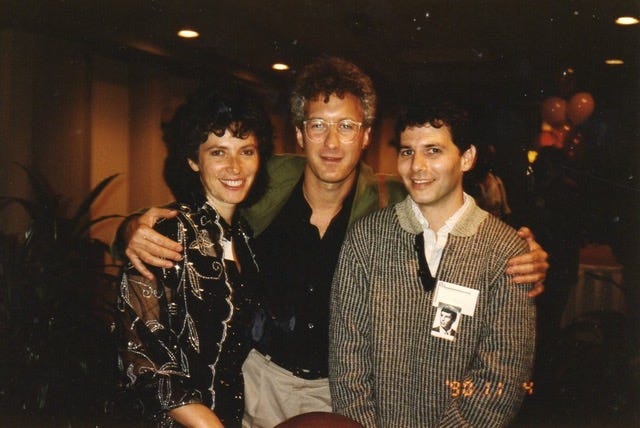|
Dear
Wheatley Wildcats and Other Interested Persons, Welcome
to The Wheatley School Alumni Association Newsletter # 74. Editor’s Note - No, you are not seeing
double. This Newsletter, # 74, follows hard on the heels of Newsletter # 73,
published just 2 days ago (on 7/1/2022). Why so soon? Because lots of
material has come in over the transom since Friday (and because I have too
much free time on my hands; I’m not doing enough). Check it out!
The Usual Words of
Wisdom
Thanks
to our fabulous Webmaster, Keith Aufhauser (Class of 1963), you can regale
yourself with the first 73 Newsletters (and other Wheatley data and arcana)
at Wheatley School Alumni Association Website Also,
thanks to Keith is our search engine, prominently displayed on our home page:
type in a word or phrase and you’ll find every place it exists in all
previous Newsletters and other on-site material. I edit
all submissions, even material in quotes, for clarity and concision, without
any indication thereof. I do not vouch for the accuracy of what people
tell me. Scores
of alumni email addresses can be found on We
welcome any and all text and photos relevant to The Wheatley School, 11 Bacon
Road, Old Westbury, NY 11568, and the people who administered, taught and/or
studied there. Art Engoron, Class of 1967 Note - Anything underlined is a
link-to-a-link or an email address, and anything not is not, because Substack
will not let you underline anything else.
Reunion Notice -
Class of 1972
The
Wheatley School Class of 1972 will be holding its 50th-year reunion on
Saturday, September 17, 2022 at Verdi's, located on Old Country Road in
Westbury, just East of Eisenhower (formerly known as “Salisbury”) Park.
The event will feature a complimentary Champagne toast and soft drinks, cash
bar, cocktail hour with hot hors d'ourves and cold antipasti, and a buffet
dinner, including dessert and coffee. The event will be in a private room,
with a private bar and bartender, dance floor and a live DJ, plus some
surprises! Admission is $100 per person, and classmates are encouraged to
bring their spouses, partners, or significant others. Payments will need to
be made electronically by July 15, 2022, via a system to be announced in the
next email blast to the class. Without taking any political position, and
purely for health and safety reasons, all attendees are requested to be fully
vaccinated. Attendees who will be needing hotel rooms, and classmates
with questions or who are interested in attending should please contact Seth
Michael Katz at liv2skiforever@gmail.com. Changes at the Top -
District Superintendent Elaine Kanas and Wheatley School Principal Sean
Feeney Are Departing
Writes
Superintendent Elaine Kanas - “I retired at the end of June. My last day in
the District office was Wednesday, June 29th. It has been a terrific and
rewarding ten years for me, having the opportunity to be the Superintendent
of this wonderful school district. I am grateful for the many relationships
developed with families and staff over those years, focused, always, on
making our students’ experiences the best ever. My best wishes to each and
every one of you for a fun and relaxing summer and a wonderful 2022-23 school
year! Welcome Dr. Gately!
Dr.
Danielle Gately, presently our District’s Deputy Superintendent, will take on
the role of Superintendent upon my retirement. She can be reached at Gatelyd@ewsdmail.org and her telephone
number will be 516-333-5748. Congratulations and best wishes Dr. Gately! Principal Sean Feeney has become the Assistant Superintendent
of the Port Washington Union Free School District
The Peer Program -
And other Assemblies and Events
Writes
Ron Judkoff (1965) - “I remember clearly the Josh White concert. He sang
"Strange Fruit" and it knocked my socks off. Some of our older
siblings were going down to help register voters in the South, and I was just
starting to play guitar and become politically aware (some might say ‘woke’). Writes
Josh Wilner (1965) - I noticed Arthur Brown recalling Josh White’s concert at
Wheatley in 1964 (not long after White had escaped the blacklist). The
concert was arranged through the good offices of Alison Bernstein’s (1965;
deceased) father, Robert Bernstein (https://en.wikipedia.org/wiki/Robert_Bernstein_(comics)).
Alison was G.O. (“General Organization,” the student government) president at
the time - a harbinger, it turns out, of important leadership roles to come,
at the Ford Foundation and elsewhere (https://www.fordfoundation.org/news-and-)stories/stories/posts/remembering-alison-bernstein/). Writes
Art Engoron (1967) - I vividly remember Alison at Wheatley; anyone who
remembers her probably remembers her vividly. She was a force of nature and
went on to great success, which surprised no one. THE WHEATLEY AURORA
- WHAT’S IN A NAME?!
Writes
Renee Gershen Nadel - “‘Aurora’ was our yearbook's name from Day One. I
was the Editor-in-Chief of the 1960 yearbook, and we inherited the name from
the year or two before us. If anyone still has that gold-colored Aurora, our
theme was “Silhouettes.” In other words we would always remember only the
shadow of our years at Wheatley, but the yearbook, hopefully, would fill in
the whole picture for us in years to come. I am hopeful it did just
that!!” Parents
Write
Jim Schaus, Jr. (1971) - “Certain original works of art bring back great
memories. I have attached three paintings done by my father, James Schaus,
who was an advertising art director in Manhattan during the week, and a
landscape and portrait painter on weekends, working out of his self-built art
studio in our home on Harvard Street in East Williston. The scenes below are
oil paintings done in the 1960's and include the Roslyn Duck Pond, the East
Williston train station (he knew it well, commuting each day), and Bacon Road
with a hint of snow on the ground. He was an extraordinarily talented and
prolific painter and craftsman, and I hope the newsletter audience will enjoy
these artistic memories of our beautiful town. Thanks ART! Graduates
1958 -
Steve Nelson - Letter to the Editor The New
York Times recently published a letter Steve wrote about the United States
Supreme Court ruling in Dobbs
v Jackson Women’s Health Organization. Steve Nelson's Letter in the New York Times about Dobbs
v Jackson (Roe v Wade) 1964 - Jesse Samberg - Looking Back Writes
Jesse - “I’ve been thinking about ‘where we are and whither we are tending,’
to quote my 7th grade English teacher. So here goes: “It was the best of times, it was the
worst of times.’ I love the opening line of Dickens’s A Tale of Two Cities,
and I think about it often as I reflect on the current political environment
we live in today. That’s how I think of the 1960s I grew up in. By
contrast, today feels like just the worst of times. (BTW, the next best first
line is ‘Call me Ishmael,’
from Moby-Dick, of course, also a classic and full of a different kind of
meaning). Ironically,
I read A Tale
when I was in high school, and Sydney Carton and England represented the best
and Madame DeFarge and France the worst. Then I went off to college and
jumped on “the Change Bandwagon,” and it was the French Revolution that
turned me on, fought only 15 years after our own revolution, but in our text
books a dark moment in history. Takeaway - ‘Revolution (besides our own) bad.
Establishment good.’ But
that’s what the 60s was about, turning the page on the 1950s when ‘the torch
was passed to a new generation,’ as JFK said in his inauguration. We
looked ahead to …… we knew not what, but that it would be modern, dynamic,
caring, and exciting. Definitely young. And more fun. The best. But
first, what about the 60s ‘worst of times?’ In many ways it was darker than
today. There were so many reasons to be despondent it is hard to look back
and wonder why our spirits weren’t crushed. Our
leaders and role models were assassinated. I don’t buy the ‘great man’ theory
of history, but you’ve got to wonder what the future would have looked like
with MLK and the Kennedys. For a
young man (and for our families, girlfriends, etc.), the War in Vietnam was a
constant anxiety and emotional straight jacket. The first TV war.
Between the time I went off to college until the end ten years later, Vietnam
became the meaning of America. One million young men, disproportionately
black and poor, were drafted. We all realized early that the war was lost,
and that the goal was to inflict maximum casualties on “the enemy.” The was
no other way to look at it. At the
same time, the Civil Rights Movement began to directly confront 100 years of
post-slavery discrimination. There was violence, often deadly. When young
white students entered the struggle in the south, we learned first-hand what
hatred looked like up close and personal (on June 21, 1964, three activists
were murdered in Mississippi, including two white students). And then
we witnessed the rage in the north as most of America’s major cities burned. And what
can I say about President Nixon. He was a deeply flawed person, fearful
and paranoid, and unable to understand and appreciate democracy. The normal
‘leak’ of government secrets led him to create ‘the plumbers,’ an
out-of-control secret group of wackos and thugs who targeted enemies, real and
imagined. Yes, all
of that was the worst. What made it the best? Why do many of us, old
and, yes, young, look back so fondly on what I just described as a time of
deep generational conflict? Change
was in the air. It is hard to think of any institution in America that wasn’t
being challenged. As a young man, I felt that every day was filled more with
possibility than with despair. We lived with an optimism that the future
would be brighter, not just for me, but for all of us. The last word of the
last line of “We Shall Overcome” is TODAY. That’s what it felt like. Or
in the short poem by Muhammad Ali, “Me…We”. It may
be corny to say, but there were many days that I lived in just the moment. No
worries about the future, no regrets for what I might be missing. I had
enough to get by and that was ok. As Kris Kristofferson wrote, and Janice
Joplin sang, in ‘Bobby McGee,’ ‘freedom’s just another word for nothing left
to lose.’ The future would sort itself out, and we would find meaningful
roles. In the meantime, try to appreciate freedom. A buzz, some music, close
friends. I find
it amusing that the phrase ‘sex, drugs and rock and roll’ became the slogan
for the era. Yes, there was plenty of all three. But ‘SDR&R’ were
more glue than content. It connected us all in a much more meaningful
culture. In a way, it also grounded us for the most part from the most
extreme tendencies (Weather Underground and way worse) of the 60s Left, by
keeping us within our youth ‘lane.’ There
are so many threads that it is hard to pull them all, but here are just a
few. I lived
in an urban commune in a large ramshackle house. We all shared rent,
cars, cooking and cleaning, and, yes, even laundry. Every week, two of
us took ten people’s laundry to the laundromat, filled every washing machine
and then driers, brought it all home and dumped it out on a blanket in the
den (or as we called it, the ‘Huey P Newton Intercontinental Crash-pad.’ We
all got on our hands and knees to find our underwear, which all faded to the
color of your grandkid’s playdough, and the socks all shrunk to fit a
toddler. No
coordination between those who shopped and those who cooked, no agreement
between women and men on the meaning of ‘clean,’ reserving a car meant an
hour of driving and picking up others, being ‘serious’ at house meetings
versus attending with a buzz, and countless other goofy accommodations to
communal living. A constant balance between sharing and personal
development. I love the slogan ‘the personal is the political,’ but 50
years later, I am not sure what it means. Maybe the ‘consciousness raising’
is closer – imagine the world we want to live in, and what I need to do to
live in it. Art was
happening nearly 24/7. Posters, street theater, music, juggling, tap
dancing. We took our ideas to the streets (when we were pelted with
vegetables, we considered it a ‘positive confrontational experience’). We
took them to the schools (in our version of Henny Penny, the sky falling was
a metaphor for climate change). All of
this was the personal side of our politics. On the broader front, we
demonstrated, marched, wrote letters and more against the war, for civil
rights, supporting unions (even as we disagreed on almost everything), gay
rights, and on issues of equality and equity for women. Some of us went South
to do voter registration, some to Washington, some to educational
institutions, many to healthcare. Our thinking was, so much to do, so little
time. We were in a hurry to make a better world. What
made our organizing more meaningful was – no internet or social media.
It was all personal and physical. It is harder to curse someone out face to
face, although there was plenty of it. The Student Anti-War Committee was
located in Madison, Wisconsin because it was about mid-way between the East
and West Coasts. On the
other hand, for all that we accomplished by forever changing the social
landscape of America, we dropped the ball when the political going got tough.
The setbacks of the 80s were depressing. We retreated into our own
progressive, social bubbles. We moved to the coasts as soon as we could,
where we had critical mass. And we are leaving the world today at the worst
of times. I hope that the “arc of the moral universe” is indeed bending for
the better, but it is hard to see it in the moment. 1967 - Art Engoron - In the News 1970 - Cathy Gerson - Fortunate to be a
Wildcat Writes
Cathy - “I feel so fortunate to have experienced Wheatley. I don’t know
anyone who has so many high school friends with whom they are still in touch.
The Newsletter is the icing on the cake! Thanks to everyone who contributed.” 1970 - Dana Seman - Deceased Dana
is on the right in the top photo and on the left in the bottom photo Writes 1970 Class Correspondent Jane Roeder
- “It is with great sadness that I share the news of Dana
Seman’s passing. We all loved Dana! ❤ I hope
you love seeing Dana’s radiant smile in these reunion photos as much as I
do. You can also feel Dana’s positive energy while reading her obit in the Tribeca Trib and
watching this iMovie created by her dear friend,
Audrey Higbee. With
much love to all of you, Jane Writes Art Engoron (1967) - Dana lived in the tall apartment
building at 40 Harrison Street (part of “Independence Plaza,” appropriately
enough), in downtown Manhattan, near where I work. In or around 2010 we got
together at least twice, once for lunch and once to exercise together in a
gym. She was a personal trainer, among her other skills and talents, and she
determinedly pointed out all the flaws in form in my workout routine. We kept
in touch sporadically after that, and her death shocks and saddens me; I had
no idea she was ill. She was strong, opinionated, and lived life on her own
terms, like we all should. Obituary: Dana Seman, 69, Trib Ad
Director Dana Seman, the Tribeca Trib’s director of advertising for 25
years and a resident of Independence Plaza in Tribeca since 1974, died on
June 16 from cancer at age 69. Though in hospice care during her last month
of life, Seman insisted on working with clients until just two weeks before
her death. Following is a remembrance by Trib publisher April Koral, who
worked closely with Seman during her many years with our publication. Dana’s
formal title was Advertising Director, but that was misleading. She was also
the office's high priestess of sorts, weighing in on the paper's cover,
trying to sway editorial decisions, and offering her opinions about design.
Carl Glassman (the editor) and I sometimes bridled at her suggestions. The
printer was waiting for the issue, we were tired, it was okay the way it was.
But as much as we hated to admit it, Dana was often right. Dana's
career at the Trib began with a chance encounter with Carl on Hudson and
Reade Streets. "We're looking for someone to work with April and sell
ads," he happened to mention to her. "I can do that!" she
replied. And so she began. Dana had never sold an ad before. She had
grown up in Roslyn Heights, Long Island, and after two years at Skidmore, had
transferred to Dartmouth, joining the first class of women graduates. Faculty
and students were not always welcoming. Just a few weeks ago, Dana told me a
story about being accosted by a professor as she was crossing the campus
green. "So you're here to get your MRS?" the professor, a woman,
said to her aggressively before marching off. A woman
of many talents, Dana was a dancer, calligrapher, and actress. By profession
she was a personal trainer, focusing on healing through movement and touch.
Perhaps it appealed to her in the same way as improving The Tribeca Trib. By
studying the way her clients moved, sat and otherwise held their bodies she
was able to help them make life-changing adjustments. Some of them found
relief from pain that they had had for years. Her fingers were magic. To
master her craft, Dana was perpetually studying, taking classes in the fields
of Body-Mind Centering, Cranial Sacral Massage, Zero Balancing, and
Feldenkrais, for which she earned a certification. On more than one occasion,
she opined about the way I walked or sat or held my body. I didn't like it.
But of course Dana was right and I slowly began changing my ways. When she
started working for us, many of Tribeca's small stores were owned by local
residents. Dana went around to all of them and got to know the owners and
managers. In the beginning, I was afraid they might be put off by a
saleswoman stopping by. But, I was soon proved wrong. I would regularly run
into store owners on the street who gushed about Dana. "Dana is so
nice." "Dana is so sweet." "Tell Dana to come by."
And, needless to say, Dana was there to help them improve their businesses.
She gave advice about their websites, their ads, their…everything. And, yes,
Dana was usually right. A few
days before she died, Dana and I had this text exchange. Dana:
The Trib job has been so good for me. I learned a lot from you and Carl and
it used other parts of my brain than bodywork. Me: It
is you I have to thank. I learned so much from you! Sometimes I will be
careless in doing something and I say to myself, "Stop, do it like Dana
would!" Dana:
You and I are a very good team. Send comments to editor@tribecatrib.com COMMENTS I was
very saddened to read the obituary in the Trib about Dana. It was always a
pleasure to run into Dana around the neighborhood. The twinkle in her
eye and her optimistic demeanor were most valued and very appreciated. We
opened our Gallerie Antiqueria Tribeca in April of 2000. It was an exciting
and yet a scary time to open a business in a neighborhood quite unfamiliar to
us. Dana soon wished us well. Her gentle demeanor, knowledge of the
neighborhood and smart business advice are still vividly in my mind. That was
the start of our many years of advertising in the Tribeca Trib as well as a
close relationship with Dana. I very much looked forward to her weekly visits
inquiring about business, family and life in general. Always a smile and a
friendly face. She will be greatly missed by all who had the good fortune to
cross her path. I had
the privilege of knowing Dana over something like 25 years. When I think of
her today, I think of her sweetness and lovely manner. She would stop in the
street to say hello and gift you with her wonderful smile and the sense that
she was so glad to have run into you. She always left me feeling so happy to
have seen her. I am so
sorry to read about the passing of Dana Seman. I remember her well from those
early years when I advertised in your print editions. She really worked with
me. I had no idea about her body work; fascinating to know that now. Sad
news. Sorry for your loss and the community's loss as well. Allan Tannenbaum Tribeca
has lost the sweetest smile on the streets. So very, very sad. Deborah Lupard Dana was
always so lovely, one of the true Tribeca locals who knew everyone in the
neighborhood. Always so nice to run into her through the years, have a street
corner chat...may she rest in peace. Oh
goodness, I am so sorry to hear this. I only knew Dana for about a year while
working at the Trib, but she was a very memorable person. She was always full
of energy, warmth, and positivity. Aline
Reynolds Khan Dana
brought a lot of life to the Trib office, and I’m so sorry to learn of her
passing. I am so
very sorry to hear about this. She was my neighbor and always such a lovely
person, personally and professionally. This is
incredibly sad news…Dana was always so nice and I always enjoyed seeing her
in the neighborhood.... I
remember Dana well—so sad to hear! Amanda
Nicole Wood Dana was
a lovely woman, so helpful as a personal trainer, and a good human being. Mafa Jane Oh no!
How sad for all of us. Condolences.
What a lovely person?! Amy Bergenfeld A Remembrance My
friend Dana was a Master Imaginer. From the
very beginning when we met in 1973 when she came to live in the communal
house we had in Hanover, until a couple of weeks ago when she could no longer
engage in conversation beyond making known her basic needs and desires, Dana
engaged whoever was playful, willing and daring enough in creating worlds of
wonder, delight and sometimes surreal experience. The participants in these
creative endeavors were not limited to friends—Dana extended this invitation
to anyone she encountered: waiters in restaurants, cab drivers, chemotherapy
nurses. She would even extend feelers to earnest, humorless doctors (with
mixed results). The
conversations usually began innocently enough with a person—e.g. a
chemotherapy nurse— asking while starting an IV “what do you have planned for
the weekend” knowing that Dana was diagnosed with Stage 4 cancer and was too
weak to walk. Dana might respond with “I’m flying to Paris to have lunch with
a friend.” A playful, willing and daring nurse would respond with “Oh, I know
a great place on the Left Bank,” and they’d be off and running, talking about
what to order, the kinds of cooking oils the place used (Dana could only eat
olive and avocado oil), the vintage of the wine, the decor down to minute
details, and then an extension of the adventure to activities following the
meal to include a detailed description of a walk along the Seine. Underlying
these forays into limitless worlds was always a sense of kindness, generosity
of spirit, love—even when the expeditions incorporated irony or a little
cynicism, just for the fun of it. My
favorite exchanges with Dana would take flight into the surreal—flying on the
back of a sea turtle to a land governed by talking fish and orangutans,
pretend playing with Barbie dolls with Ivanka Trump as Barbie and Donald as
Ken. When
Dana passed on this morning—left her body, died, however you conceive of that
state of being/non-being following what we call life—I tried to imagine there
being no Dana, no more Dana worlds, no more Master Imaginer. But I am not creative
enough to imagine such a thing. So I am left to wonder what amazing
experiences Dana will create without having to rely on the material
limitations of synaptic transmissions. Whatever they are will be filled with
love, whimsy, funky music and light. Dream
on, beautiful Dana. —Audrey Higbee 1975 - Dan Weiss - Moving On
Fan Mail
1961 (Jill Davidson Blaney) - ❤️ 1965 (Phyllis Galella Luckey) - ❤️ 1965 (Ron Judkoff) - “Great issue. Thanks for bringing
back powerful memories.” 1965 (Judy Lutrin Sidran) - 👏 1965 (Josh Wilner) - “Always fun to scroll through the
newsletter looking for tidbits. Thanks and kudos to you and Keith both!” 1967 (Jill Simon Forte) - “Seeing the Newsletter makes me
smile. Last time Bob thought I saw it already and got rid of it 🙄; now he knows to ask 😜😆. I enjoy the newsletters more than I ever enjoyed going to
school 😄😄😄😄😄😄😉 . Nice photo of you and the two other
Wildcats😍.” 1967 (Barbara Smith Stanisic) - ❤️ 1968 (Patti Garin Abelson) - “Thanks for the Newsletters.” 1968 (Shelly Levinthal) - ❤️ 1969 (Madlyn Nathanson Flavell) - “Thanks for keeping us all posted in
such positive ways!” 1970 (Cathy Gerson) - “Thank you for all you do.” 1970 (Deborah Silverman Sloyer) - “Thanks for keeping us updated.” 1971 (Jim Schaus, Jr.) - “Thank you for your tireless
efforts over the years to connect Wheatley alumni, sharing photos and stories
of our formative years and lives after Wheatley.” 1972 (Robin Freier Edwards) - “Thanks so much for another great
newsletter! (I especially liked your addendum as to the origin of the name of
the yearbook! 👍🏻🤣) 1972 (Lori Waltzer Bernstein) - “I'm grateful to all who make these
newsletters happen and to all who contribute, giving each edition a rich
depth of content, emotion and camaraderie.” 1974 (Joyce Comito Friedman) - ❤️ 1974 (Frank Russo Labriola) - ❤️ 1976 (Robin Firetog Glanzberg) - ❤️ 1976 (Ted Lipsky) - “Thank you for continuing to send this
regularly. It is always a worthwhile read, and I am happy to see what is
happening with this great school and the amazing graduates it always
produces.” Closing
That’s
it for The Wheatley School Alumni Association Newsletter # 74. Please
send me your autobiography before someone else sends me your obituary. Art Arthur
Fredericks Engoron, 1967 646-872-4833 |






